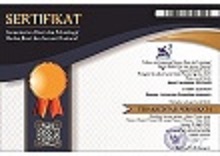CONTEXTUAL DESIGN: PENGEMBANGAN MODEL PEMBELAJARAN PROBLEM BASED LEARNING PADA PERKULIAHAN STUDIO PERANCANGAN BANGUNAN GEDUNG TINGGI
Abstract
Abstract: This research is a learning model development research that aims to achieve learning outcomes in high-rise building design course studios, using a contextual design approach based on the Problem Based Learning model, this research was conducted by applying the principles of contextual inquiry, interpretation, and data consolidation on the assignment, as well as applying storyboarding and prototyping techniques in the final presentation of the assignment. This research concludes that the development of this learning method can be accepted by class participants with a pass rate of 67%, but still requires some improvements in strategy search, integration of structure and utility systems, as well as understanding of the best principles and environments.
Keywords: design studio, contextual design, Problem Based Learning, tall buildings
Abstrak: Penelitian ini merupakan riset pengembangan model pembelajaran yang bertujuan untuk mengevaluasi capaian pembelajaran pada perkuliahan studio perancangan bangunan gedung tinggi, dengan menggunakan metode pedekatan contextual design yang berbasis pada model pembelajaran Problem Based Learning, penelitian ini dilakukan dengan mengaplikasikan prinsip-prinsip contextual inquiry, interpreasi, dan konsolidasi data pada penugasan, serta menerapkan Teknik storyboarding dan prototyping pada penyajian akhir penugasan. Riset ini menyimpulkan bahwa pengembangan metode pembelajaran ini dapat diterima peserta kelas dengan tingkat kelulusan 67%, namun masih memerukan beberapa perbaikan dalam strategi penelusuran bentuk , integrasi sistem struktur dan utilitas, serta pemahaman tentang prinsip kenyamanan dan keberlanjutan lingkungan.
Kata Kunci: studio perancangan, contextual design, Problem Based Learning, bangunan tinggi
Full Text:
PDFReferences
Abel, T. D., & Evans, M. A. (2014). Cross-disciplinary participatory & contextual design research: Creating a teacher dashboard application. Interaction Design and Architecture(S), 19(1), 63–76.
Aleks Catina. (2020). Dialogue and studio space: the architectural design studio as the setting for continuous reflection. Journal of Applied Learning & Teaching, 3(1), 4–13. https://doi.org/http://dx.doi.org/10.1680/geot.2008.T.003
Aranda-Jan, C. B., Jagtap, S., & Moultrie, J. (2016). Towards a framework for holistic contextual design for low-resource settings. International Journal of Design, 10(3), 43–63. https://doi.org/10.17863/CAM.7254
Davies, J., Graaff, E. de, & Kolmos, A. (2011). PBL across the diciplines : Research into best practice. Aaalborg Universitet PBL Acrosss Discipline.
Dinatha, N. M., & Kua, M. Y. (2019). Pengembangan Modul Praktikum Digital Berbasis Nature of Science (Nos) Untuk Meningkatkan Higher Order Thinking Skill (Hots). Journal of Education Technology, 3(4), 293. https://doi.org/10.23887/jet.v3i4.22500
Edström, K., & Kolmos, A. (2014). PBL and CDIO: Complementary models for engineering education development. European Journal of Engineering Education, 39(5), 539–555. https://doi.org/10.1080/03043797.2014.895703
Hadgraft;, G. G., & Kolmos, A. (2020). Aalborg Universitet Emerging learning environments in engineering education This is an Accepted Manuscript of an article Published by Taylor & Francis in Australasian Journal of Engineering Education available online : Australasian Journal of Engineering Education, 25(1).
Hakim, L. (2015). Implementasi Model Pembelajaran Berbasis Masalah (Problem Based Learning ) Pada Lembaga Pendidikan Islam Madrasah. Jurnal Pendidikan Agama Islam Ta‟lim, 13(1), 44. http://jurnal.upi.edu/file/03_IMPLEMENTASI_MODEL_PEMBELAJARAN_BERBASIS_MASALAH_-_Lukman.pdf
Handrianto, C., & Rahman, M. A. (2018). PROJECT BASED
LEARNING : A REVIEW OF LITERATURE ON ITS OUTCOMES AND implementation issues. Linguistics, Literature and Language Teaching Journal, 8(2), 110–129. http://jurnal.uin-antasari.ac.id/index.php
Kolmos, A., Bertel, L. B., Holgaard, J. E., & Routhe, H. W. (2020). Project types and complex problem-solving competencies: Towards a conceptual framework. International Research Symposium on PBL, 56–65.
Lambe, N., & Dongre, A. (2016). Contextualism : An Approach To Achieve Architectural Identity And Continuity. International Journal of Innovative Research and Advanced Studies(IJIRAS), 3(2), 33–42.
Miller, E. C., Severance, S., & Krajcik, J. (2021). Motivating Teaching, Sustaining Change in Practice: Design Principles for Teacher Learning in Project-Based Learning Contexts. Journal of Science Teacher Education, 32(7), 757–779. https://doi.org/10.1080/1046560X.2020.1864099
Saginatari, D. P., & Atmodiwirjo, P. (2018). Reflection on Ecological Learning Through Architectural Design Studio. DIMENSI (Journal of Architecture and Built Environment), 45(1), 73. https://doi.org/10.9744/dimensi.45.1.73-84
Saifudin Mutaqi, A. (2018). Architecture Studio Learning: Strategy to Achieve Architects Competence. SHS Web of Conferences, 41, 04004. https://doi.org/10.1051/shsconf/20184104004
Shima Nikanjam, Badiossadat Hassanpour, A. I. C. A. (2016). Exploration of Influential Factor on Firts Year Achitecture Strudent’s Productivity. World Academic of Science, 10(5), 1594–1599.
Widati, T. (2015). Pendekatan Kontekstual dalam Arsitektur Frank Lloyd Wright. Jurnal Perspektif Arsitektur, 10(1), 38–44. https://e-journal.upr.ac.id/index.php/JTA/article/view/857/696
Zaduqisti, E. (2010). PROBLEM-BASED LEARNING (Konsep Ideal Model Pembelajaran untuk Peningkatan Prestasi Belajar dan Motivasi Berprestasi). Forum Tarbiyah, 8(2), 181–191.
DOI: https://doi.org/10.17509/jaz.v6i2.49800
Refbacks
- There are currently no refbacks.
Copyright (c) 2024 Ahmad Ibrahim Rahmani

This work is licensed under a Creative Commons Attribution-ShareAlike 4.0 International License.






